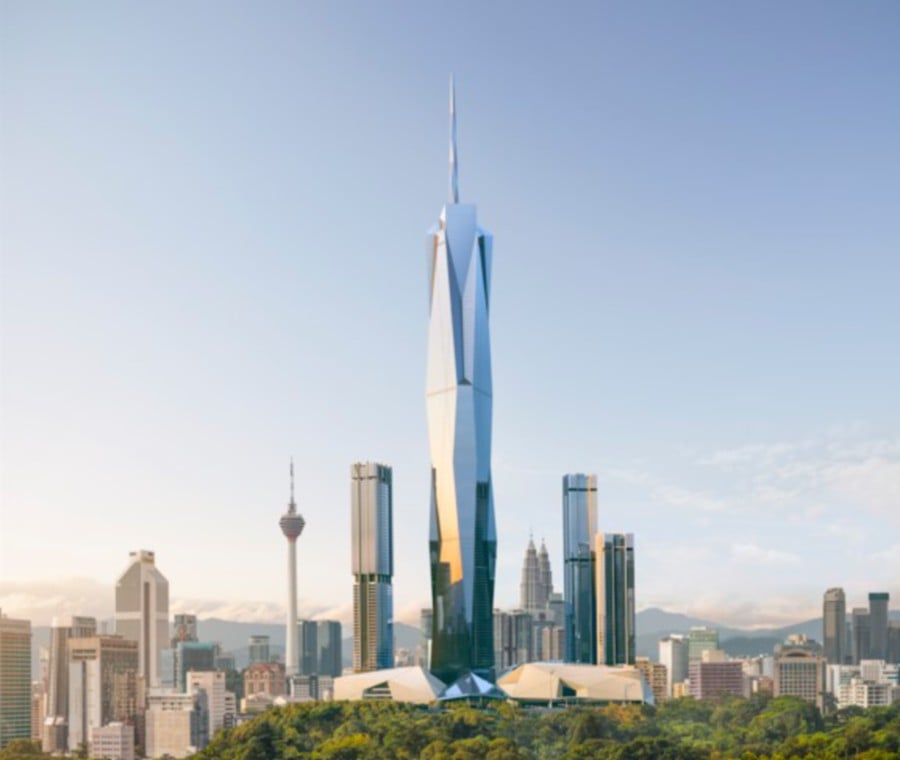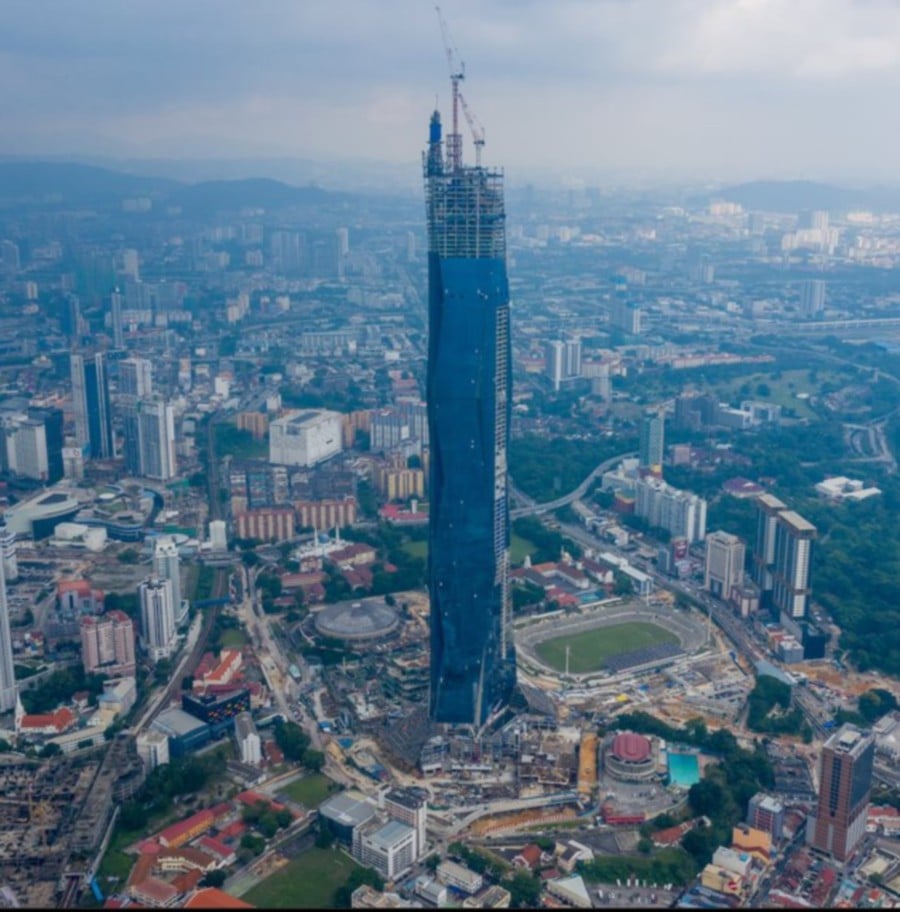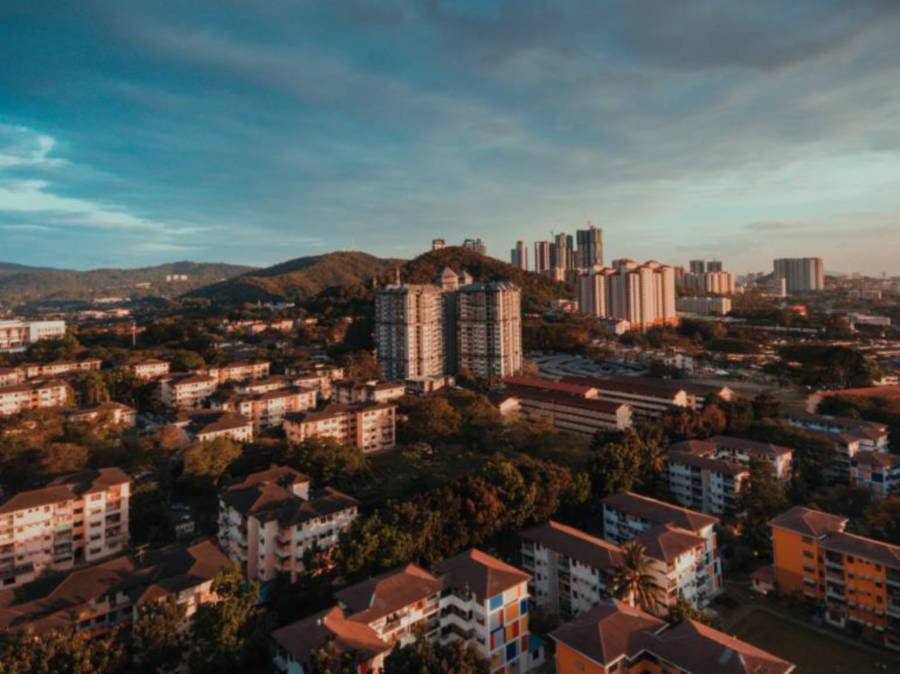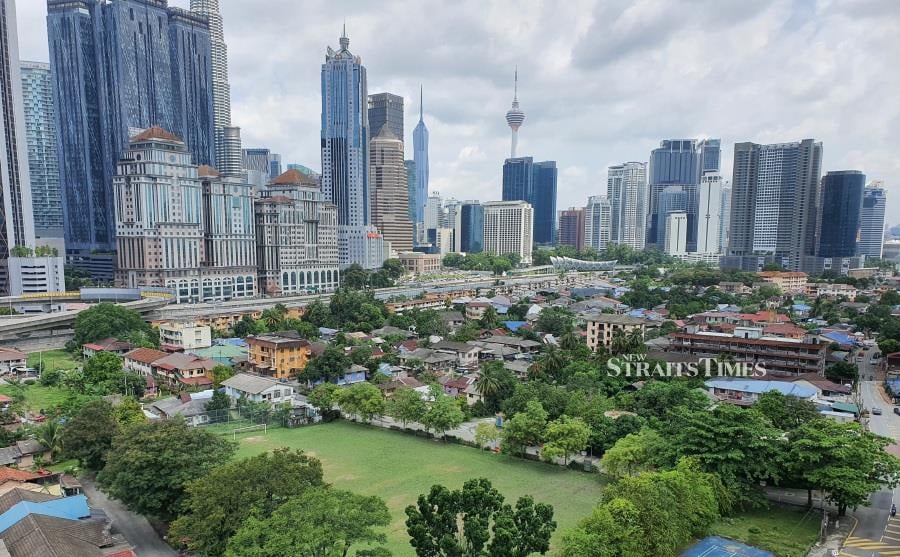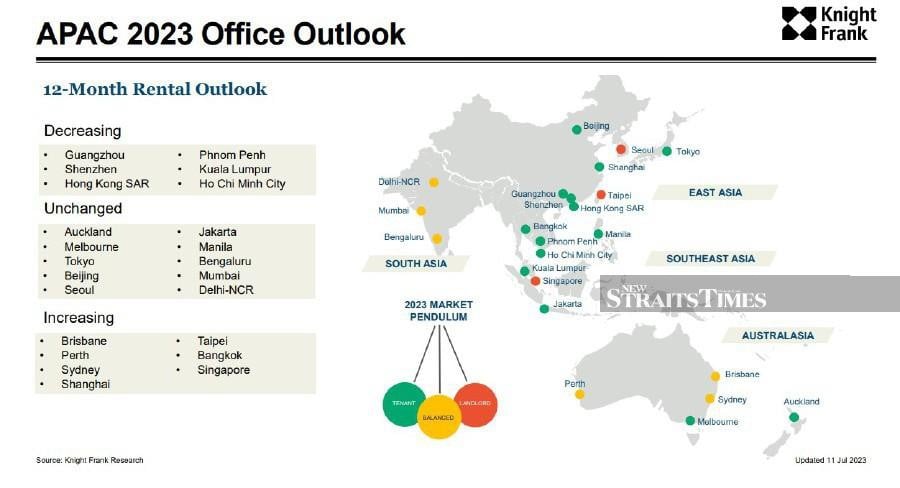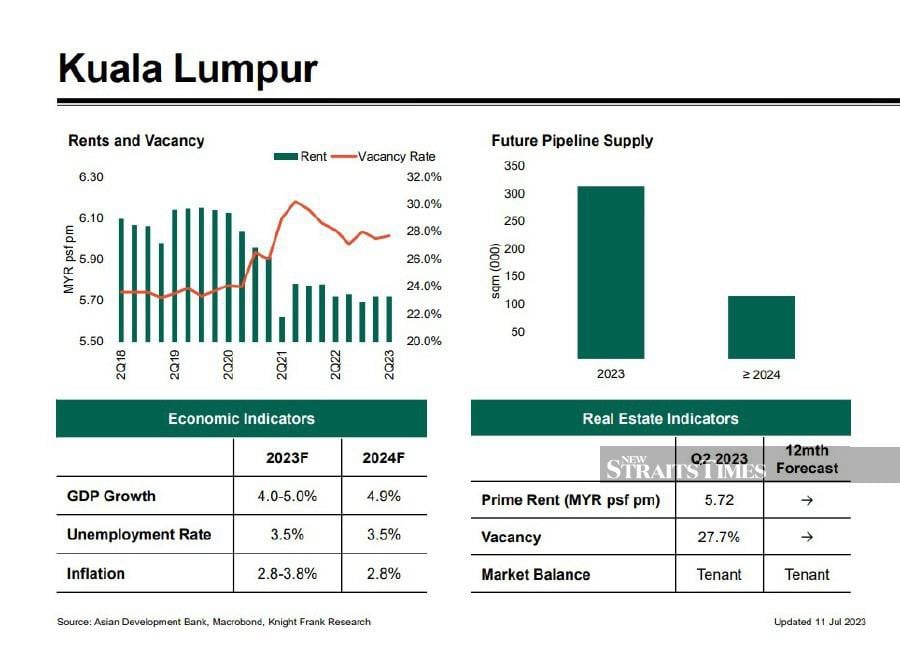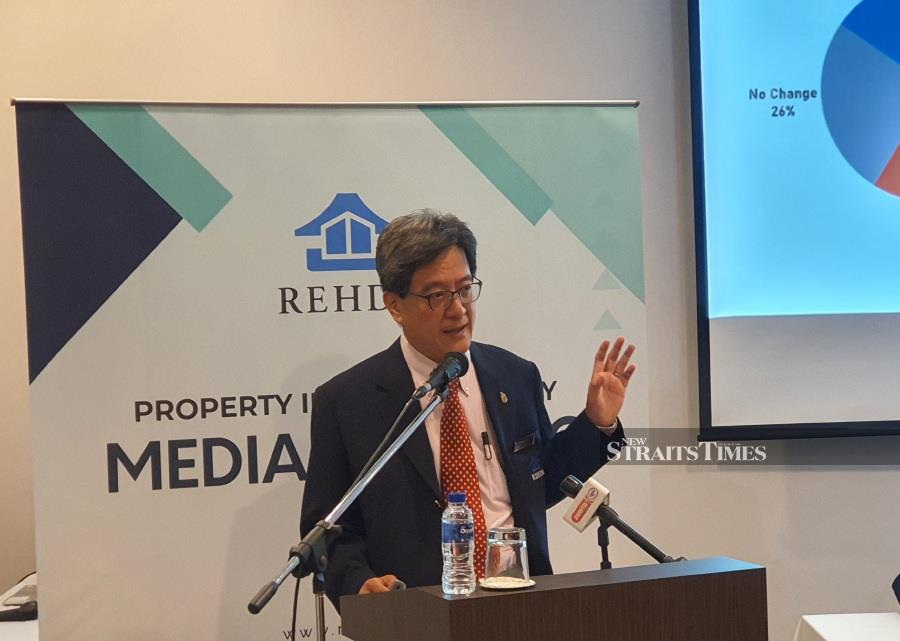By NST Property/Kathy B. - August 30, 2023
Kuala Lumpur: More construction activities will take place at the RM5 billion Merdeka 118 complex on Jalan Hang Jebat in Kuala Lumpur next year.
PNB Merdeka Ventures Sdn Bhd will begin construction on three new residential towers, the tallest of which will reach 65 storeys, according to the company's chief executive officer, Tengku Datuk Ab Aziz Tengku Mahmud.
What is worrying is whether this would result in even more traffic congestion in the densely populated area, said an industry insider.
The Merdeka 118 complex is located between Jalan Maharajalela and Jalan Hang Jebat, with convenient access to Jalan Syed Putra, Jalan Hang Tuah, Jalan Pudu, Jalan Tun Tan Cheng Lock, Jalan Loke Yew, and Jalan Tun Razak.
According to the insider, such a massive structure necessitates careful planning.
"I am confident that the project would have considered all aspects of the development before beginning construction on the three residential towers next year in order to avoid causing unnecessary stress to road users.
"I also believe that this iconic project will have a significant impact on the properties surrounding it, particularly residential real estate. The proximity to such a prominent name will be used as a sales gimmick," he told NST Property.
PNB Merdeka Ventures, a subsidiary of Permodalan Nasional Bhd (PNB), will build the 65-storey Merdeka Residences East Tower and the 63-storey Merdeka Residences West Tower, according to Aziz.
The company will also build the Oakwood Premier Kuala Lumpur serviced residences in 2024, he said.
Oakwood Premier is a premium residential services market leader noted for its comfort and ease.
PNB Merdeka Ventures signed a management agreement with Oakwood Premier in November 2021.
Oakwood Premier Kuala Lumpur will be the brand's second property in the city, following Oakwood Hotel & Residence Kuala Lumpur on Jalan Ampang.
The structure will be built next to the Merdeka 118 tower. There will be 348 residences with one, two, and three bedrooms.
According to Aziz, the three residential towers will be completed in 2027.
He was speaking to reporters during a media tour of the Merdeka 118 tower earlier this week.
At 678.9 metres, the Merdeka 118 tower is the world's second-highest structure.
According to Aziz, the skyscraper is over 70 per cent occupied.
The Merdeka 118 tower has a net lettable area of about 1.7 million square feet and over 8,000 parking spaces.
It is currently 97.2 per complete.
The tower features premium Grade A office spaces from Levels 8 to 96, as well as Park Hyatt Kuala Lumpur from Levels 97 to 112.
PNB, which will occupy 17 floors of the tower, will move in by the end of this year. It is relocating to the skyscraper from its current location in Menara PNB, Jalan Tun Razak, which has been its home since 1985.
Malayan Banking Bhd (Maybank) and other tenants will relocate within the next 12 months, according to Aziz.
The anchor tenant, Maybank, would occupy 33 storeys, he said.
Levels 115 and 166 will house the observation deck (The View at 118), Level 117 will house the conference centre, and Level 118 will house the multipurpose event area.
The Merdeka 118 skyscraper, which was designed by the Australian firm Fender Katsalidis, was formally recognised as the second-tallest structure in the world and the tallest in Southeast Asia at the Council on Tall Buildings and Urban Habitat (CTBUH) Conference 2022 in Chicago, the United States.
The Burj Khalifa in Dubai, which is 828 metres tall, holds the title of the world's tallest structure.
The construction of Merdeka 118 began in 2016 on a site overlooking Stadium Merdeka, a historically significant facility built for Malaysia's declaration of independence in 1957.
Other components of the Merdeka 118 development include Stadium Merdeka, Stadium Negara, 118 Mall, Little M (a PNB childcare centre), Masjid Merdeka, Merdeka Boulevard at 118 (a four-acre public linear park), and the Merdeka Textile Museum.
